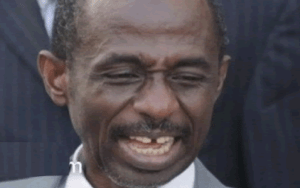MMDCEs election will eliminate Winner-Takes-All politics – Asiedu-Nketia

Mr Johnson Asiedu-Nketia, General Secretary of th3e National Democratic Congress (NDC) has reiterated that the election of Metropolitan, Municipal and District Chief Executives (MMDCEs) will eliminate the problem of Winner-Takes-All politics in Ghana.
Winner-Takes-All is an electoral system in which, a single political party can elect every office within a given district or jurisdiction.
It is in contrast with proportional representation, in which more than one political party can elect offices in proportion to their voting power.
“Our politics and elections have become so controversial because everybody thinks that you must be on the side of the President, who wins otherwise you are a lesser citizen in the country.”
Mr Asiedu-Nketia said this over the weekend in Accra at a Multi-Stakeholder Conference organised by the Ghana Catholic Bishops’ Conference with funding from the Konrad Adenauer Stiftung.
“If you have a system, where control over local government institutions can be shared among the political parties; even the smaller political parties can focus on one particular district and make sure that they get an MMDCE elected, so that they also have a chance to participate.” He said.
“So, it is the best form of sharing power and that will make our elections more peaceful; because if you lose the Presidency, you have not lost everything, at least you have a chance to participate (in the election of MMDCEs).”
The Conference seeks to sensitise Ghanaians on the upcoming referendum on the election of MMDCEs, slated for December.
Article 55 (3) of the 1992 Constitution prohibits political party sponsorship of candidates for elections to District Assemblies or local government units; however, the ruling New Patriotic Party (NPP) Government has proposed a referendum to amend the constitution to allow for the election of members of district assembly and MMDCEs based on political party representation.
Mr Asiedu-Nketia said for the people to have control of the district assembly, the Constitutional Provision that gave the President the power to nominate 30 per cent of assembly members had outlived its usefulness.
He also noted that after operating the 1992 Constitution for more than a quarter of a century, it had become very clear that provisions that barred partisan politics at the district level had become obsolete, hence the need to take a second look at it.
With regards to the pending referendum on the election of MMDCEs, Mr Asiedu-Nketia said: “We are talking about universal adult suffrage as the basis for this election. But we are going into the referendum, and we are going to register voters.”
“We have raised this issue that the system that has been put in place now to capture voters register before the election will lead to 1.2 million Ghanaians being unregistered.
“And so I would want everybody to study the facts and see how if you are talking about universal adult suffrage it must be universal adult suffrage.”
He said the Statistical Service of Ghana had projected the registrable population to be 1.7 million; however, the Electoral Commission was putting in system to register only 500,000.
“And we are saying that please if you are going for universal adult suffrage, let it be universal adult suffrage, there is no point in trying to suppress anybody’s vote,” he said.
Source: GNA
